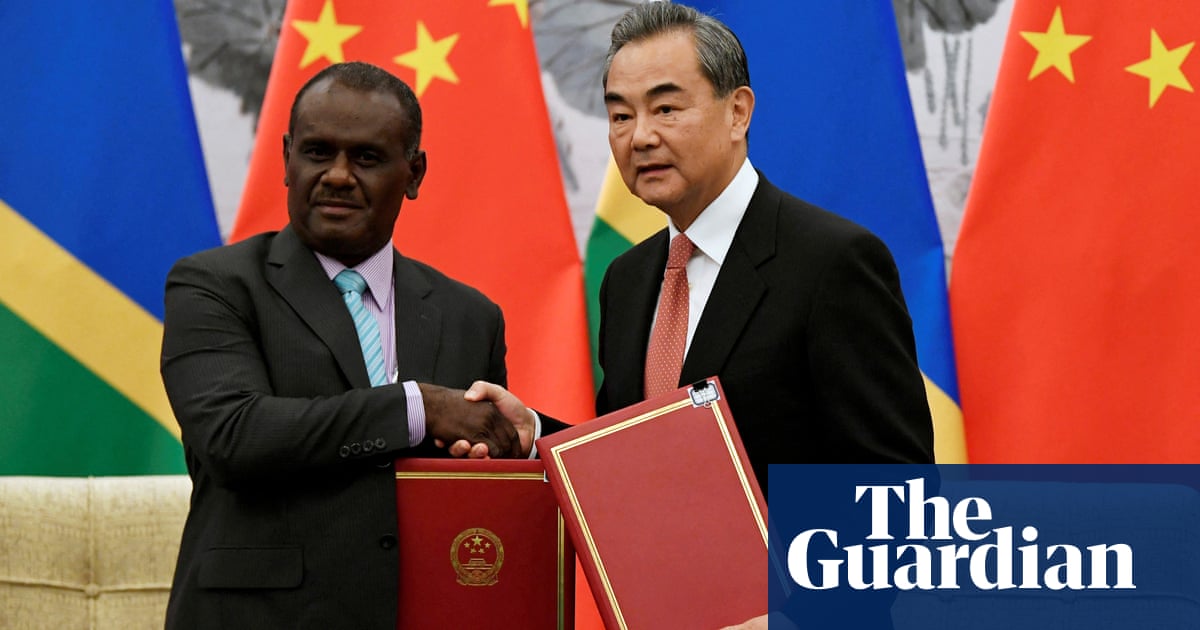
Solomon Islands lawmakers have elected Jeremiah Manele as their new prime minister, a former foreign minister who has pledged to continue the Pacific island nation’s policy of embracing China.
Manele said outside parliament on Thursday “the people have spoken”, and called for calm.
“I humbly stand before you, as your elected prime minister. We must respect and uphold the democratic process,” Manele said.
The incumbent Manasseh Sogavare withdrew from the contest earlier this week after failing to secure a majority in last month’s election and backed Manele.
Manele was foreign minister in 2019 when Sogavare’s government turned its back on Taiwan and established diplomatic relations with Beijing.
Police had boosted security in the capital Honiara as the newly elected lawmakers arrived at parliament on Thursday to conduct the secret ballot.
The country’s governor, Gen Sir David Vunagi, announced outside parliament house that Manele had won 31 votes, to opposition leader Matthew Wales’ 18 votes.
A national election in April failed to deliver a majority to any political party, and two camps lobbied to win support from independents ahead of the vote for prime minister.
The poll is being closely watched by China, the US and neighbouring Australia because of the potential impact on regional security, after former prime minister Manasseh Sogavare struck a security pact with China in 2022.
Australian prime minister Anthony Albanese congratulated Manele saying in a post on X, “I look forward to working closely with him. Australia and Solomon Islands are close friends and our futures are connected.”
Lowy Institute research fellow Mihai Sora, a former Australian diplomat in Solomon Islands, said Manele had “a strong track record of working well with all international partners”, compared to Sogavare who was “a polarising figure”.
The new prime minister’s Our party has pledged to build more infrastructure and won 15 seats, gaining four seats under a renewed coalition with two micro parties.
It needed support from independents to reach 26 seats for a majority in the 50-seat parliament.
The election will be followed by the swearing-in of the prime minister and elected members of parliament, as well as the election of the speaker.
With Reuters and Agence France-Presse